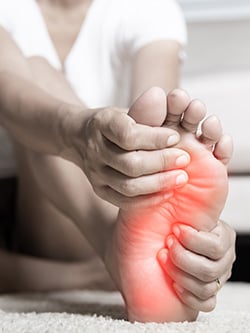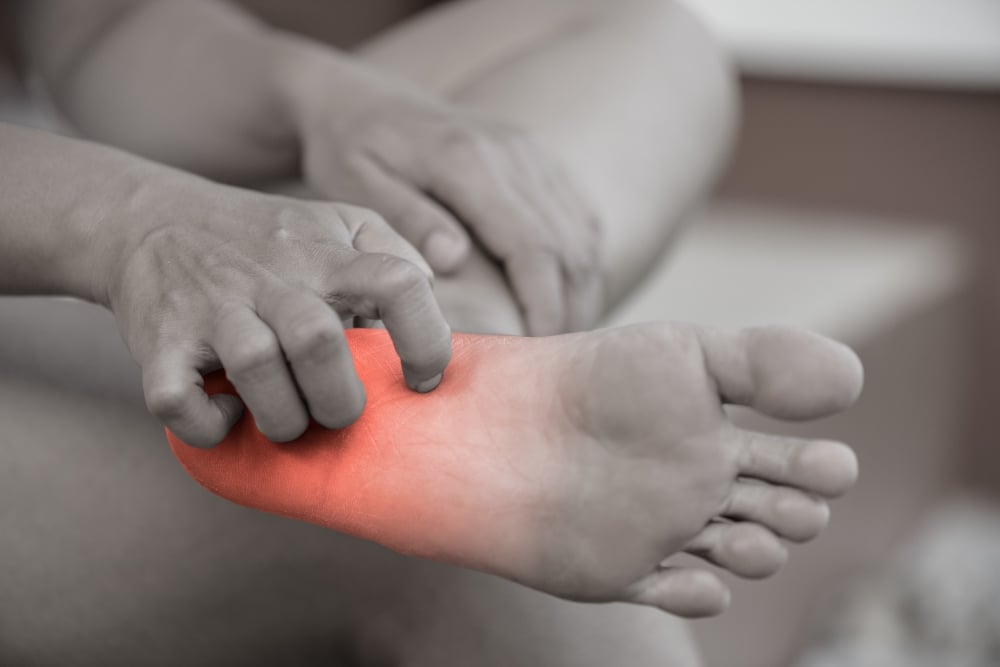Your Guide to Nerve Compression Syndrome
Nerve compression syndrome occurs as a result of damage to the peripheral nervous system. The peripheral nervous system connects the central nervous system (brain and spinal cord) to the rest of the body. Damage to this system causes a disruption of the nerve’s ability to send and receive messages, which may result in pain, numbness, tingling, and impaired function.
Nerve compression syndrome may commonly be referred to as:
- Compression neuropathy
- Entrapment neuropathy
- Nerve entrapment syndrome
- Peripheral nerve entrapment
- Peripheral neuropathy
- Trapped nerve
The three major nerves in the arm that are responsible for carrying messages between the brain and hand include the median nerve, ulnar nerve, and radial nerve. These three nerves may become “compressed” resulting in damage, ranging from moderate to severe.
- Median nerve. Median nerve pain (also called median nerve compression or median nerve entrapment) can result in persistent forearm or wrist pain. When the median nerve is entrapped at the wrist, it results in the most common form of nerve compression syndrome, carpal tunnel syndrome (CTS).
- Ulnar nerve. Ulnar nerve entrapment is the second most common type of nerve compression. This entrapment usually occurs near the region of the elbow, particularly in the section called the cubital tunnel, and for that reason is also known as cubital tunnel syndrome.
- Radial nerve. The radial nerve begins at the brachial plexus (shoulder) and extends down to the wrist and hand. Injury to the radial nerve usually causes symptoms in the back of the hand near the thumb, index, and middle fingers.
Non-surgical Treatment Options
There are a number of conservative treatment methods that may help to alleviate symptoms of nerve compression. These include the following:
Adjust Daily Activities. Activities such as crossing the legs, computer typing, carrying heavy loads or doing certain repetitive activities can exacerbate symptoms. Alleviating the pressure on the affected body part by resting it can provide some relief from those symptoms. If work requirements cause symptoms to worsen you may want to consider changing or modifying jobs to slow or stop progression of the disease.
Be Physically Active. While rest can offer some relief, it is important not to forego movement. As long as it is approved by a doctor, exercise can help to manage symptoms. Low-impact activities such as walking, swimming and biking are recommended. Stretching can also be helpful.
See a Physical and/or occupational therapist. Physical therapy is helpful at customizing exercises, emphasizing flexibility, strength and balance, which is important for safety (to prevent falls). In addition, when indicated, occupational therapy can also assist those with nerve compression syndrome to enhance fine motor skills, such as using silverware and buttoning clothing.
Ask Your Doctor About Medications or Injections. If you experience daily pain, you may want to discuss daily medication or injections with your doctor. Categories of medications include both over-the-counter as well as prescription drugs used for temporary pain relief. Depending on which nerve is damaged, steroid injections may be recommended for their anti-inflammatory properties.
Surgical Treatment Options at The Institute for Advanced Reconstruction
When conservative treatments have not worked, surgery may be the best treatment option for nerve compression. The goal of these procedures is to relieve abnormal pressure on the affected nerve.
The Institute for Advanced Reconstruction has established a cutting-edge and highly-successful nerve surgery program. We are experts in treating a variety of nerve compression syndromes.
Do you think you may be suffering from nerve compression? Contact our practice to schedule a consultation at one of our surgery center locations in New Jersey, New York, or Pennsylvania.
Live outside of the United States? We are also available for phone consultations with prospective out-of-town patients from around the globe.






